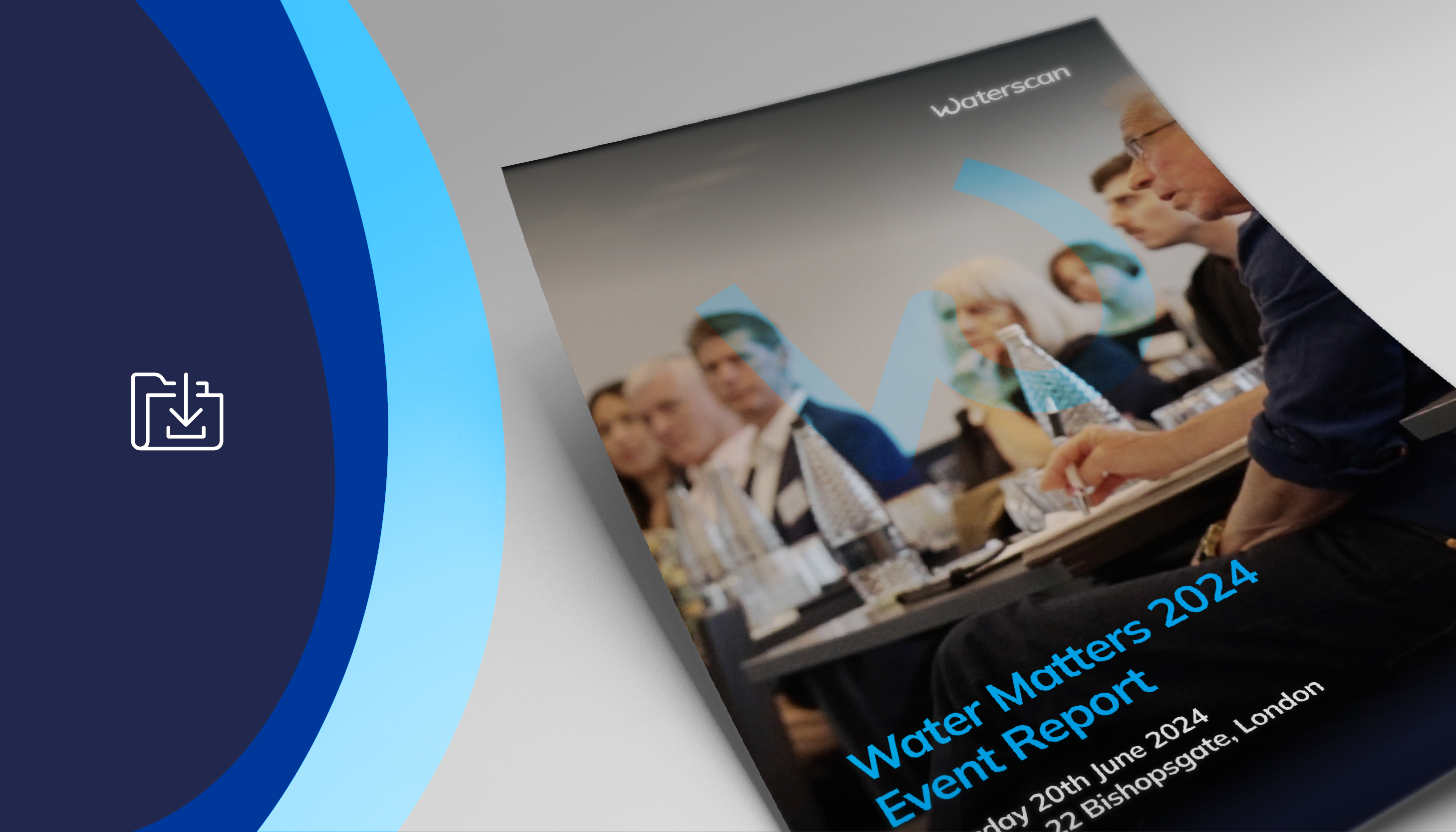Operational resilience is the ability of an organisation and its infrastructure to avoid, cope and recover from disruption, and its ability to adapt to environmental pressures, demographic change, shifts in customer behaviour and the impacts of climate change.
It’s easy to take water for granted. Water is the most abundant resource on our Earth and, on the surface, our supply is plentiful. Scratch a little under the surface and we can begin to understand the stress our water resource is under.
This is why poor water stewardship is now considered to be one of the greatest risks to business continuity and growth. Only water-resilient organisations will be prepared for anything, able to evolve to suit our rapidly changing world and secure long-term success.
Taking action on water now builds adaptability and resilient organisations for the future. Here’s how.
Acting on water will:
Unlock business-critical data
Data has been an increasing area of focus for some time and this is deepening. So much so, that the Bank of England expects all organisations to consider the thematic findings and any work they may need to do to improve their governance, controls, and data related to regulatory reporting.
Understanding gaps in water data and working to reduce data exposure is central to effective water management and reporting. Data exposure might be, for example, missing consumption data from unmetered or gap supplies, missing service components in billing or missing trade effluent consents. If data gaps are left unresolved, it is likely that they will lead to financial liabilities from uncontrolled water consumption or leakage, retrospective billing and even fines.
Data exposure first needs to be quantified and then appropriate actions taken to reduce and mitigate the associated risks. With quality, accurate data, it is possible to effectively plan for the future using real numbers (not assumptions) to ensure resilience and continuity in the face of climate change.
Limit regulatory risks and repercussions
There are numerous regulatory and legislative risks around both water usage and water pollution, requiring organisations to obtain and monitor abstraction licences, trade effluent consents, and discharge licences to name just a few. Failure to do so can lead to substantial penalties and stakeholder pressures which could impact future success.
Processes need to be established and enacted to ensure continual compliance. Further, the Task Force on Climate-related Financial Disclosures and the Sustainability Accounting Standards Board have both specified that water should be incorporated into organisational risk management and action plans in a bid to bridge the gap between legislative and regulatory controls and corporate action.
Create positive social, environmental and commercial impacts
Generally speaking, it is rarely practical or viable to operate a national estate universally on a nominal amount of water since all sites differ in their water consumption needs and catchment impacts. Therefore, a plan needs to be put in place to prioritise and target sites that will deliver the greatest environmental, social and financial returns on water action plans.
Only accurate water data enables organisations to identify priority sites and create targeted action plans that will have long-term positive impacts and improve climate change resilience by reducing dependence on finite natural resources.
Build effective contingency plans
Defra predicts that England will need 28.5% more water each day by 2050 to meet demand.
In this context, how can organisations keep sites operational in the event of intermittent or complete loss of water supply?
Identifying operationally critical sites and analysing their water risks is the pathway to developing appropriate site-level plans to help ensure the continuity of business operations and, importantly, secure water for generations to come.
Adapt to social and cultural shifts
Consumers, investors and other stakeholders are switching on to water stewardship so businesses need to adapt and respond to their growing expectations. Yet too many companies are failing to disclose. CDP revealed that nearly 30,000 companies worth at least US$24.5 trillion in market capitalisation scored an F in 2022 for failing to respond to disclosure requests from their investors and clients or for providing insufficient information.
Businesses that do adapt to meet the needs of their many stakeholders will:
- Experience enhanced loyalty [1]
- Build trust [1]
- Be awarded higher valuation premiums by investors [2]
- Realise higher earnings of 3.1%EBITDA, and 5.5% higher gross margins.[2]
Organisations like Coca-Cola, Sainsbury’s, Whitbread and BT are acting now to build operational resilience. Find out how and review our simple 10 step plan to help you become more resilient to the impacts of climate change and to secure your water future.




